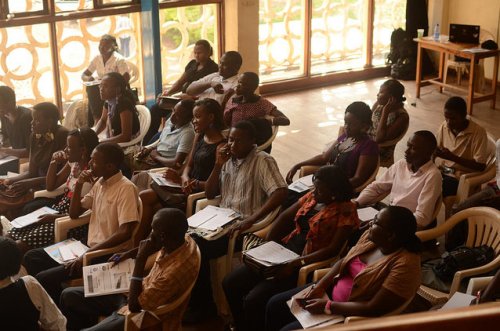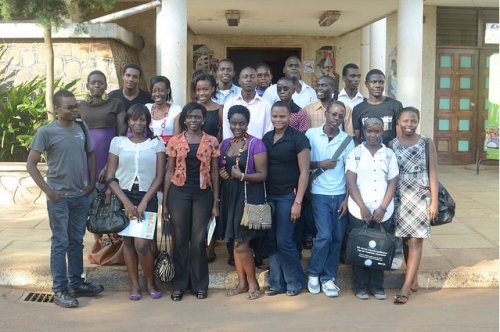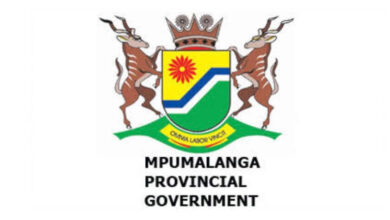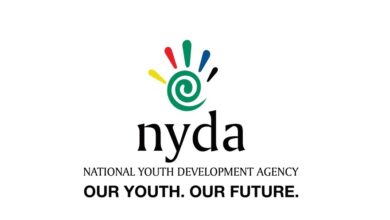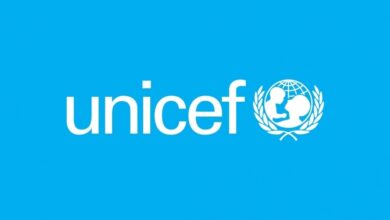Brian Bwesigye Interview
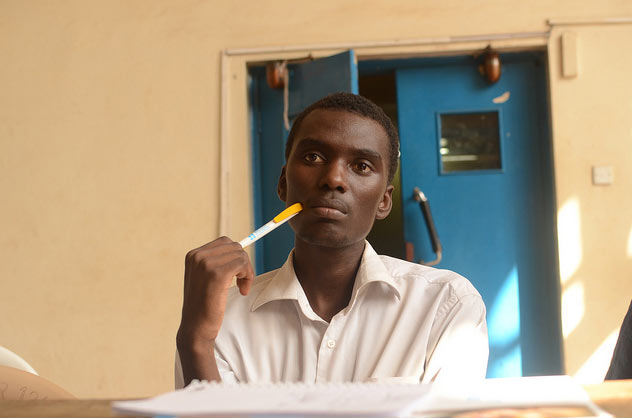
Brian Bwesigye is definitely one of the young people you can’t box as he is known for being a writer, lawyer, human rights activist and teacher, with that being said he advices other young people to never fit themselves in boxes. In this interview we talk to him about his project WriTivism, which its main purpose is to centre the progression of ideas into action and stimulate change through writing and reading.
Youth Village: Who is Brian Bwesigye?
Brian: I gave up trying to fit one description. There was a time I was working very hard towards being one thing. Had I succeeded, now I would just tell you, Bwesigye is this, full stop. But I gave up and accepted that I am so many things at the same time and will forever be. When you meet my students at university, they will call me a university teacher. When you meet some of the people I studied with at Law School, they will probably say I am a lawyer. Those I studied with at graduate school where I studied Human Rights will say I am a human rights activist. Those who read my work, especially fiction and some nonfiction commentary will say I am a writer. In a few months from now, I will have done more work on my theatre dream, and so dramatist may also pop up among my descriptions. It’s a useless thing trying to fit in one box. But there are basic boxes, say age, I am twenty five. Another standard thing is the place where I grew up and was born. I was born in Kabale Hospital and grew up in Nyanja, in south-western Uganda, close to the border with Rwanda.
Youth Village: You grew up in Uganda. How was your upbringing?
Brian: I grew up with my mother. She is a teacher and we stayed at the staff quarters of the school where she taught. Her workplace and our home were one thing. And so I started school at a very young age, but also since then, school life has been the only thing I have known in and out. I went to a boarding secondary school, so my first major separation from Mama was at twelve years. I cried. Mama is my life. Always has been, but since that day in March 2000, life has conspired with our enemies and the geographical distance between me and Mama has increased. In 2005, I went to a city school, more than 200 kilometres farther from home. The next year I enrolled at Makerere University for a Law degree, still in the city, far away from home. In 2011, I did not just move far away from home, but away from Africa to Budapest, Europe to study Human Rights. I documented my experiences and views about that life in The Budapest Chronicles. All this journeying, away from home, away from Mama I told myself would end with Budapest. So I returned to Uganda thereafter. The concept of home had now expanded to be a whole country, and so anywhere in Uganda could be home. So I am now close to Mama in a way, but still not close enough. I am working towards getting geographically closer – back to where it all started.
Youth Village: What is WriTivism about?
Brian: Writivism is about the incubation of social change through writing. Writivism is based on the postulation that writing is in itself a form of activism, a form of change making. Writers spill whatever they do on the page and by doing that, they have sown seeds of change. Some of the seeds germinate when some people we call readers buy books, magazines, journals etc. and engage with the writers’ ideas. What happens next to the seeds depends on the readers. Some readers receive the seeds well, and are inspired to take the writers’ ideas as they interpret them to another level. Some just sleep on the ideas, and the ideas in a way are taken to rest.
Writivism is a mechanical way of following this process. We identify brilliant young writers of fifteen to twenty five years of age, train them in a one day workshop on the basics of short prose writing, and then pair them with established writers of our generation for mentoring. The Observer and Monitor newspapers will publish these writers’ stories and Kushinda and some yet to be disclosed publishers in Africa and elsewhere shall publish the stories in an anthology. After that we follow the seeds. We shall take the writers on tours of schools and also hold discussions with readers’ clubs and groups, to have a deep engagement with the ideas the writers put to page in their stories. We anticipate that some of these ideas will manifest in the lives of the readers and we shall have the readers tell us which stories have impacted on their lives and how. The writers of the stories with the biggest impact shall be recognised and given some modest prizes as Writivists of the Year. This competition and resulting processes will happen each year, and within Centre for African Cultural Excellence (CACE) circles, we are discussing possibilities of Writivism for Zimbabwe and Nigeria for the start.
Youth Village: What inspired you to start project?
Brian: The birth of Writivism happened in many places. It happened in a certain hotel room at St. Margaret Island in Budapest where my friend Boaz Muhumuza was staying for a conference, but it also happened in my own room at Central European University Residence Centre in the same city. It also happened in space. The space that is the internet, include Skype, Facebook and Gmail where I was interacting with Novuyo Rosa Tshuma, a Co-Founding Director of CACE. Writivism was also born at the Fifth Harambe Bretton Woods Symposium 2012 where I met and connected well with Naseemah Mohamed, resulting into the founding of CACE together. Writivism was also born in Brussels, in discussions with Gabriela Jaegar of the British Council Global Changemakers and other GCMs like Bruce Dube, Gilbert Omware, Charlotte Moyo, and Gilmore Moyo among others.
Naseemah has implemented a brilliant project in Zimbabwe, incorporating the arts in secondary education. That was inspirational. Novuyo won the Intwasa short story prize while she was nineteen, in her teenage. That was inspirational. Gilmore was central to the Peace of Art project in Zimbabwe that used the art to build better inter-ethnic relations. All these stories pointed me to an unmet need in Uganda. There are so many young writers that are not being mentored or even given platform to harness their skill, and there is a larger unrecognised readership, of newspapers and of fiction that goes under the carpet when we bemoan the lack of a reading culture in Africa. I was inspired by these realities. I knew it was possible to create a platform through which young writers can interact with readers and through which we can trace and earmark social change that has resulted from reading. To recognise writing as a form of activism. And not only writing done by the old, but also writing coming off teenage and young adult pens. So, in one sentence, I was inspired by the reality of unutilised potential.
Youth Village: How has this project helped young people in Uganda?
Brian: The project started in October 2012; we are half way since we have only implemented two and half components. We are starting the publishing of the stories in the newspapers in April, the anthology will be released in June, the writers will make tours in July and we shall have the Writivists of the Year announced in August. I cannot tell how the project has helped the young people yet, but I can say that I expect them to be learning a lot from the mentoring process. We have enlisted five brilliant, established and young Nigerian writers, one Zimbabwean and one Ugandan award winning writers to mentor the writivists. From the Facebook status updates of many of the writers, they say their writing has improved as a result of this mentoring. Some say their eyes have been opened. We gladly hosted South African writer Zukiswa Wanner and Ugandan award winning writer Beatrice Lamwaka alongside Okwir Oduor and Constance Obwonyo in a one day writing workshop in January. Getting inspired maybe called help to the young writers. Exposed maybe the correct word. But I will not own the achievements of the young writers, it is not morally proper. I think giving them a platform surely is the only help we can give. We shall publish their stories. We shall organise reading events for them. The rest is up to them. The hardworking shall make use of the platform. We organised a workshop for them, we have enlisted mentors, who we are not paying anything by the way, to guide them and give them some skills. How they actually benefit is their issue as individual writers.
Youth Village: What is the main purpose of this project?
Brian: The main purpose of Writivism is to centre the progression of ideas into action and change in writing and reading. WriTivism envisions a society where literature is a vehicle for engaging young people in social change action. We want to inspire, train and engage. That’s all really.
Youth Village: Your team won the 2012 International Chain Story challenge. What makes you guys strong and achieve while educating?
Brian: The Sextet Pen Africa team! Hm. It is not going to be easy answering this. But I will tell you how it all started. As 2012 began, Emmanuel Iduma (Nigeria) sent me a message saying that I had been selected alongside Novuyo Rosa Tshuma (Zimbabwe) to develop our novel manuscripts in a 3B network. I am from Uganda, so eastern, southern and western Africa were combined in 3B. That is how I met Novuyo and how my knowing of Emmanuel was going to deepen. Emmanuel’s novel Farad was published in 2012, Novuyo’s novella, Shadows was also published in 2012, and a collection of short stories of mine, Fables out of Nyanja was published in the same year. Although the manuscripts we were working on are different from the ones that have been published, 3B energised the writing mojos of us three. Around mid-2012 is when the call for interest in the International Chain Story Challenge came out. Novuyo, building on the 3B network, the Farafina workshop network (she attended the Farafina sometime back) thought she could raise a team of six African writers under 30 to form a team. Emmanuel and I were there already anyway. We just needed three others. The rest were Nigerians. Onyeka Nwelue, Abubakar Adam Ibrahim and Dami Ajayi. There was no theme to the competition. They sent us a starting line and each writer had an hour to write their segment of the chain story. So in six hours we had a story. And the following phase was a voting phase. Readers were asked to vote for the different chain stories that were written in the same way on the same day at the same time. Our team was the youngest in age and the only continental wide, with a lot of Nigeria and some Uganda and Zimbabwe. The readers voted ours and we won. We had fun. That is all. The educating was not our goal. Our goal was to have fun. If we educated in the process, it was not something we set our mind to do. We wanted to win, of course. But midway, the fun overrode the winning. But it turns out, we achieved a lot more than we set out to. What is important for me now, is the importance of networks. It is not surprising that the six members of Sextet pen, except myself are mentors under the Writivism project. Novuyo is a mentor and gives administrative help, so do Emmanuel, Abubakar, Dami and Onyeka. Networking, Networking, Networking and utilising the potential of networks is the only strength there is to a writer.
Youth Village: How can one be a part of this project?
Brian: One can be a part of Writivism at different levels. We welcome volunteer facilitators and mentors. Award winning and published writers who are passionate about continental African writing and the role of writing in our societies can send us an email at [email protected] and we explore the possibilities of working together. We also want the writivists to get out there and be given opportunities. That is another way of taking part in the project. Availing opportunities to the Writivists. If one wants to be a writivist, as of now, the project is limited to young people of fifteen to twenty five years old, resident in Uganda and can write a short story (fiction) of 1000 – 1500 words within a set deadline. We then shortlist those with good stories and at that stage, they are firmly taking part in the project. We hope to start a similar project in Zimbabwe and Nigeria, but can’t give more details than that as of now. we are open to discussing ways of improving the project so, anyone can send us an email on the address above and we talk.
Youth Village: Being a young person what do you think is biggest challenge in Africa?
Brian: I think the biggest challenge in Africa is the thinking that only Africa has challenges. And so the search for Africa’s biggest challenge is Africa’s biggest challenge. I would say poverty is Africa’s biggest challenge, but show me a continent without poverty and I prove how much you know of the world. Some friends of mine think Africa needs education, by which they mean schools. Others say Africa needs health, by which they mean hospitals. And I ask myself, if education is the attainment of skills, through how many methods have we attained skills in Africa outside schools? If health is the condition of the person’s body and mind, how many of us in Africa keep our bodies and minds in good condition without going to hospitals? I think I have now discovered Africa’s biggest challenge. We have artificial challenges. We cry of not being healthy, but we the criers know the herb whose sap can heal us when we bleed, knowledge handed down from our ancestors and not given to us in schools. We say we are not educated yet we can weave mats, make iron tools through blacksmithing and other skills we have inherited from our forefathers and mothers, without school. Now, you agree with me, that if you do not get the problem right, you won’t get the solution right. There is our biggest challenge. Our failure to harness our potential. Our failure to tap into the opportunities that indigenous knowledge offer. Recently, a teenager at one of Kampala’s crowded high schools made a tablet that can heal worm infections. How? She is just a teenager? She did this by applying her grandmother’s knowledge, that pawpaw seeds heal worm infections. Her grandmother had used the seeds to heal their infections when they were young and voila, now we have a tablet made by a teenager. Will she be supported? Our failure to believe in our own potential and abilities is what kills us. We do not develop local potential and do not support solutions from within.
Youth Village: What have you learned from being a Global-Changemaker?
Brian: Lots of things. Where do I start from? I had some basic project planning skills. I got more from the Global-Changemakers network. I have gained better networking skills through the network. I have learned a lot from my peers, I hear their amazing stories and each one of them teaches me so many lessons. Have you heard of Bruce Dube? Of Gilbert Omware who is fighting stereotypes of Africa head-on? Do you know of Grace Ihejiamaizu who is grooming a generation of social entrepreneurs? Each one of these people has a particular story loaded with lessons. And guess what, none of these people is twenty six years old yet. Belonging to their league alone is a lesson. That guess what, there is a lot of company if one wants to change whatever they want to change in their communities. I will say something small about networks again. The power of networking shows in the impact the Global-Changemakers have on one another. There was a lady from Ghana who teaches adolescents how to avoid HIV/AIDS by pulling out a dildo from her pocket and demonstrating to them how a condom is used. Such bold methods of sending the message home. And it works. And I knew it through the Global-Changemakers network.
Youth Village: Going forward do you have financial support to help you grow your project?
Brian: Of all support we have received to grow our project, the financial has so far been the minimal. We received a Community Action Project grant from the British Council Global Changemakers program. 2300 Swiss Francs is the value of the grant. We have received half of that so far. But the monetary value of the support we have received, from people ravelling on their own to come and facilitate a workshop for no single pay, people putting in time to mentor young writers for no pay, a centre allowing us to use their space for no pay, receiving notebooks, pens and folders for use, at no cost, people putting their time on judging the stories to get those to shortlist at no pay and so much more. We have so far become a testimony to the power on in-kind contributions to a project. The monetary value of the in-kind contributions we have received is more than five times the cash contribution we got from the British Council Global Changemakers program. We are anticipating another grant soon, so we can scale up our activities, instead of having four tours, can have twelve of them etc., but so far, we attest to the power of goodwill and support to a project.
Youth Village: How can we as Africans help each other whether it is politically, financially and economically to mention a few without Western help?
Brian: There is a type of help no other person but an African can give. I can give you an example, I think the best person who can teach me Ndebele the language is one who speaks it. And most probably, the best speaker of the language will be a Ndebele person. There is need for Africans to know themselves. I think that is where it all starts. Once I know myself, I can know others. Once we know who we are, If I know that, I am a Mukiga, the I will later know how we came to be in Uganda, and then from there can know how our relatives the Ndebele ended up in Zimbabwe, and then it will hit me that we are all the same people facing the same problems in just different contexts. Do we need the West to do this? No. Do we need the West to do collaborative projects for example on translation of our languages into other African languages? No. So let us start with cultural ties. The rest will follow as they say. Afterall culture widely interpreted is a lot of politics and economics. Let there be a lot of inter cultural exchange on the continent. We do not need western help for this to happen.
Youth Village: What are your thoughts for lack of mentorship in Africa?
Brian: It is a disease. A deadly disease. And what do we do to a disease? We prevent it. When we fail to prevent it, we try to treat it. When we fail to treat it, it kills us. And then others who survive mourn. We need to prevent the diseases where it is yet to hit. Where it has hit, we need to treat it. We can’t afford to die. Others can’t afford to mourn us. So they also will help, that word help, us to treat the disease. For their selfish interest. For they do not want to mourn. It does not help them to mourn. It is not just our responsibility but everyone’s responsibility to prevent and treat this disease.
Youth Village: Do you think gender matters when it comes to leadership?
Brian: Somewhere in this interview, I talk about my mother. Many of my successful friends also say so much about their mothers. I am not successful. These people I am talking about are really successful. They say their mothers had a lot to do with it. I imagine if Malawi and Liberia did not just have female Presidents but their systems, their societies also had strong involvement of females? This day, as I was walking along a dusty road, a recklessly driven pickup truck passed us by. One of the women who were walking with me said; “Ono omusajja avuga bubbi.” – This man drives badly. I do not know if these women already knew the driver of this car. If they did not, then the assumption is that only men can drive this recklessly. Our countries world over are being led poorly because we have put a reckless gender at the helm. That is what I think, so gender matters.
Youth Village: What is your advice for young people?
Brian: Young people should not fear to go against dogma. They should not fear to challenge what everyone else takes for granted. They should trust their gut feeling. They should never try to fit in someone else’s dream. They should follow their own dreams. They should not draw boxes and fight to fit in those boxes. They should just do whatever they want to do.

